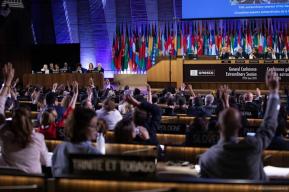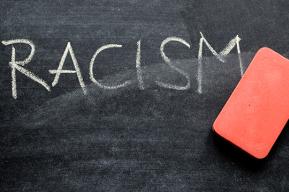News
“Cameroon is an example of diversity to the world”

During her first official visit to the Republic of Cameroon, Ms Irina Bokova, Director-General of UNESCO, held several meetings with members of the Government and representatives of United Nations agencies there, to strengthen several ongoing programmes and identify priority projects for future cooperation.
Topics of work included girls’ and women’s education, which is also a public health issue for the prevention of diseases such as HIV and AIDS and polio, and the reduction of maternal mortality. The Director-General highlighted the education emergency in Central Africa, where there are significant disparities between and within countries, including Cameroon, identifying two priority areas for action: strengthening the quality of education, from primary to higher education, through better teacher training; and developing education for employment and social inclusion. She also took stock of the risks of poaching in the Sangha Trinational site, which is on the UNESCO World Heritage List and shared by Cameroon, the Central African Republic and the Congo.
Cameroon’s Minister of Communication paid tribute to UNESCO’s work developing community radio, in local languages, which play an essential role of cohesion and information throughout the country: “When people are not informed, they are subjects; when they are informed, they become citizens” he stressed.
The regional UNESCO Office in Yaoundé, a symbol of a new stage in the Organization’s cooperation with Cameroon, was inaugurated in the presence of the Minister of Basic Education and several other members of the Government, under the high patronage of the Prime Minister of Cameroon. The Office will spearhead UNESCO’s work in 10 countries in central Africa, within the reform of UNESCO’s field office network, under way since the end of 2013. “The inauguration of this office is a powerful symbol of the cooperation between UNESCO and Cameroon, and I would like to begin by thanking the Cameroonian authorities, President Paul Biya and the Government, for their generosity and their efforts in the provision of this building and in their support for our programmes”.
The Director-General also visited the “International Reference Centre Chantal Biya” (IRCCB), specialized in prevention and training in the fight against HIV and AIDS. The Centre is an active partner of UNESCO, which has contributed to several facilities and the creation of the resource centre. The Centre, equipped with an immunology and medical analysis laboratory, is visited by 8-10,000 student researchers each year. “This Centre is an important part of our global action in the fight against HIV through education in Africa, and I am pleased to meet the teams we work with”, said Ms Bokova.
In her acceptance speech as the first woman to be awarded the title of Doctor Honoris Causa of the University Yaoundé I, the Director-General revisited the longstanding cooperation between Cameroon and UNESCO, which had led to the establishment of the Ecole Normale Supérieure in Yaoundé, in 1961. “I receive this award as recognition of UNESCO’s work in this country. Our history is rich and there is hardly any area in our activities where Cameroon is not active, from biosphere reserves to heritage sites, from community radios – which are very active in Cameroon – to higher education. Cameroon is an incredibly diverse country, with more than 200 local languages, different communities and different religions, and in today’s world, dominated by intolerance and rejection of others, it is good to have positive examples like this one, and to see that we can be different and yet live in peace, accepting and understanding of one another. This daily work is sometimes difficult, which is all the more reason for us to carry it out together. From this point of view, Cameroon can be an example to the world”.
Referring to the longstanding tradition of peace and tolerance of the people of Cameroon, the Director-General called for increased efforts to spread the culture of peace, a concept launched by UNESCO 25 years ago in Yamoussoukro, and which is at the heart of the pan-African campaign “Make Peace Happen” and several events scheduled before the end of the year, such as the UNESCO forum “Youth and the culture of peace” in Libreville, Gabon.







